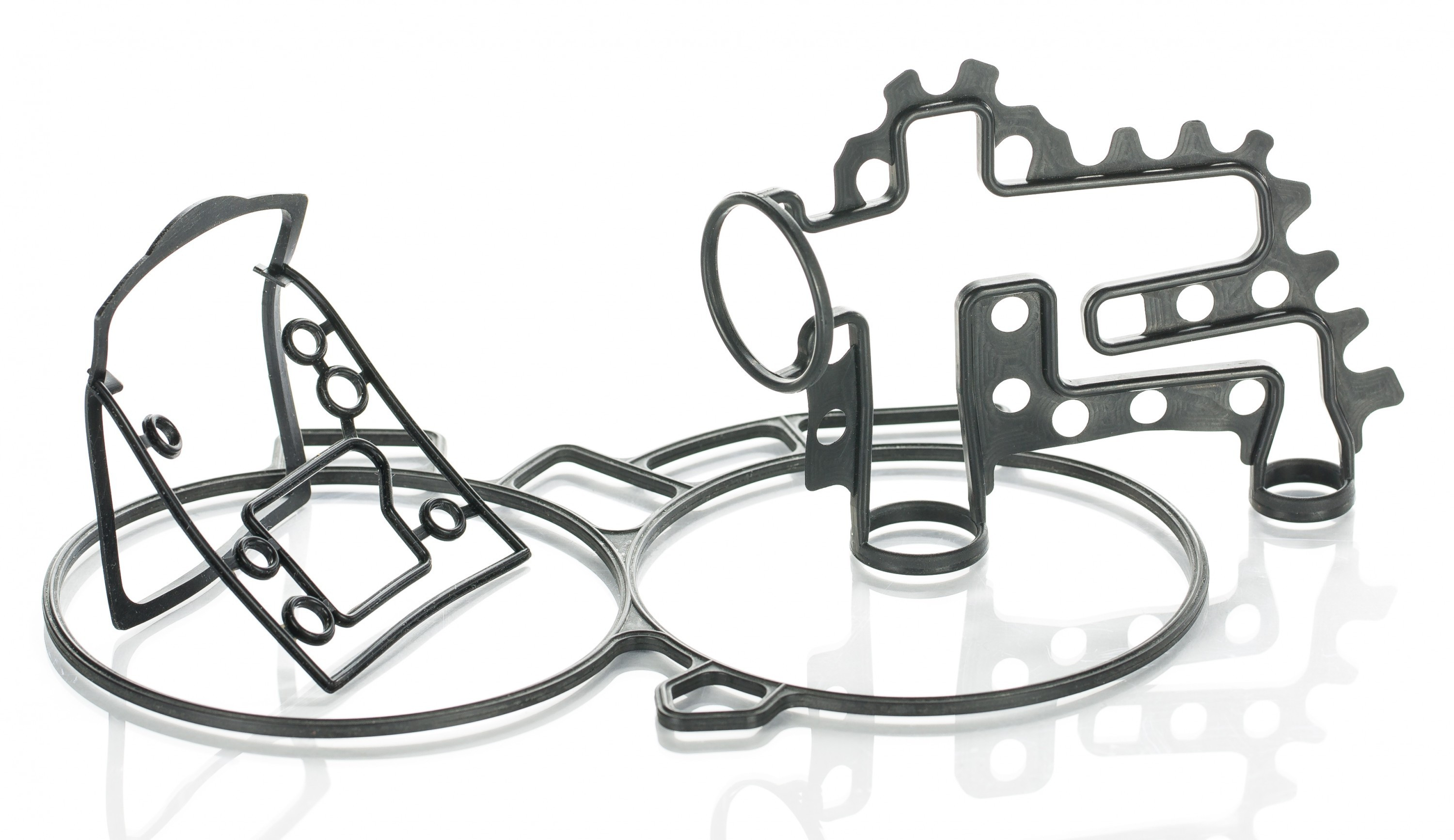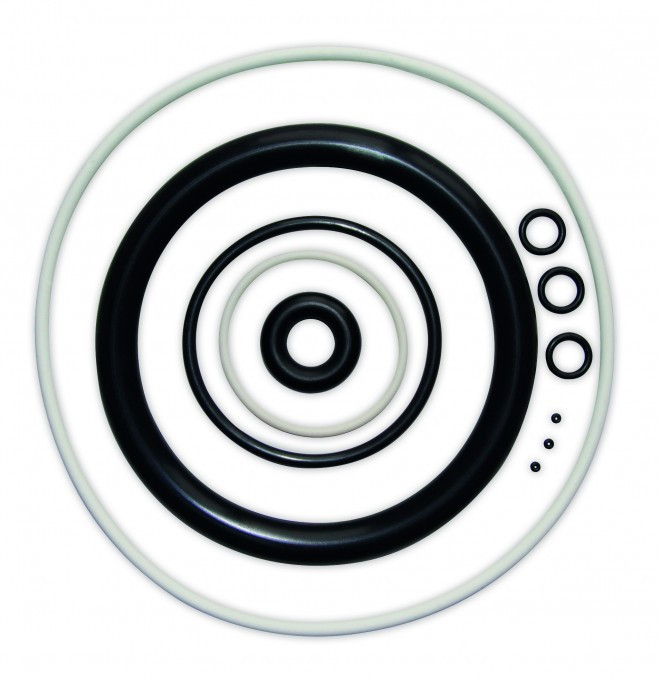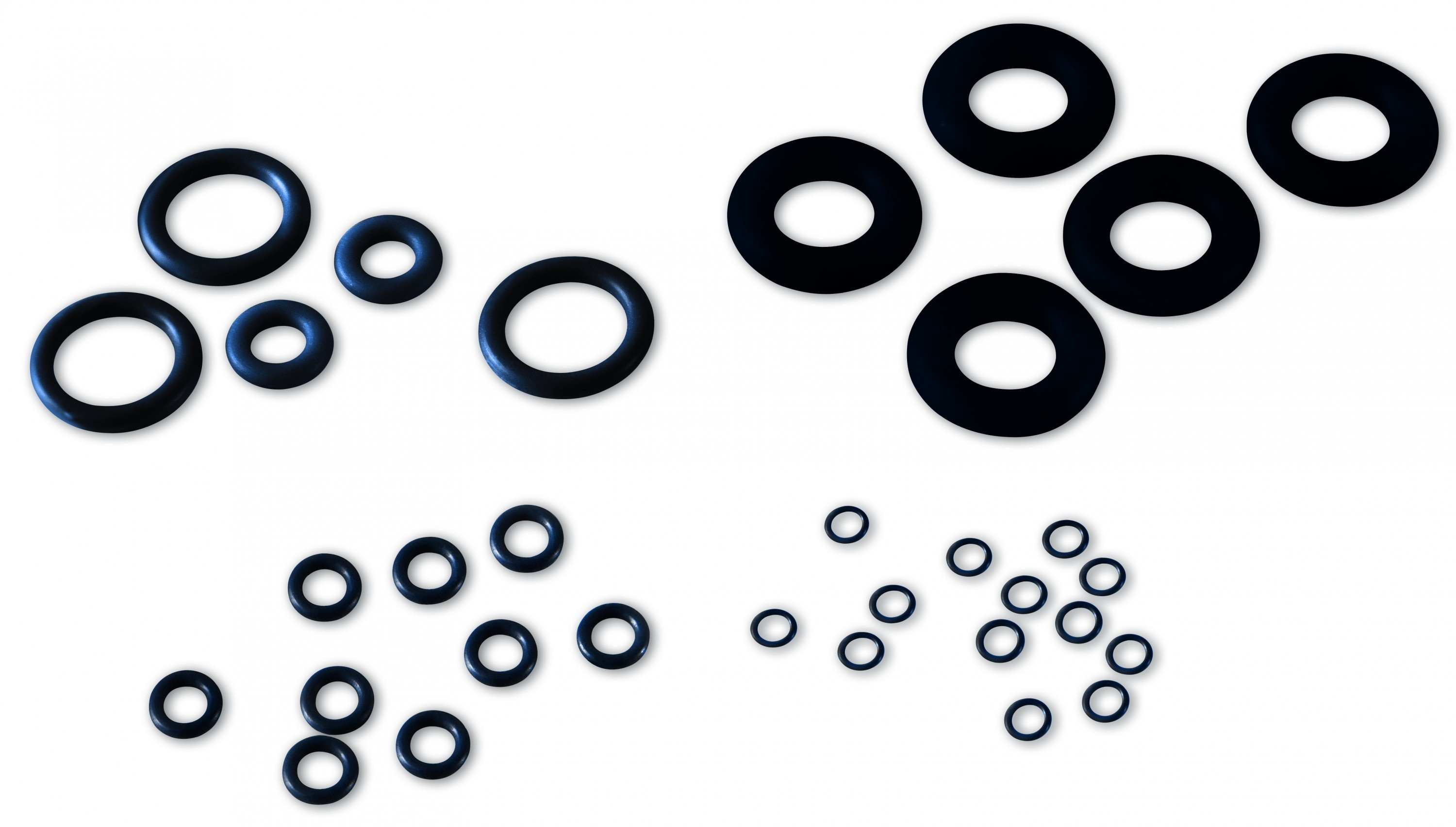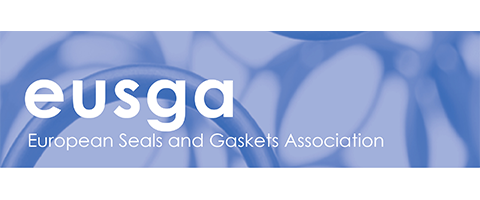What is FKM/FFKM?
FKM (fluorocarbon rubber) is a synthetic fluorocarbon based elastomer where vinylidene fluoride (VDF) is the main monomer. The presence of fluorine in the composition provides very high levels of chemical resistance compared to non-fluorinated elastomers. There are multiple formulation possibilities with various levels of fluorine content (generally ranging from 66% to 70%), together with three different curing (cross linking) systems and a variety of copolymer, terpolymer and tetrapolymer variants. This means the final compound can have significantly different fluid resistance and temperature capabilities, meaning compound selection based on a full analysis of the application is critical.
FFKM (perfluoroelastomer) is essentially a highly fluorinated FKM, with fluorine levels at or above 75%. This gives it exceptional levels of chemical and thermal resistance, better than any other elastomer and similar to that of PTFE, but these benefits come at a very significant increase in cost.

Why use them?
The higher temperature capability and greater chemical resistance often makes an FKM the more whole-life cost effective choice compared to alternative elastomers which may initially be lower cost, but would require more frequent replacement. Recent advances in formulation technologies have improved the low temperature capability, extending the range of applications where FKM is the most suitable solution. It has a low gas permeation rate by elastomer standards which together with the ozone and ageing resistance makes it a good choice for long term gas sealing applications.
FFKM seals are significantly more expensive and their use is limited to applications in aggressive environments where no other elastomer will survive the temperature or chemical conditions for long enough (for example in the manufacture of semiconductors), or in applications where downtime and costs associated with a seal replacement would outweigh the very high purchase cost of the seal (for example in the oil and gas extraction and processing industries). They can provide an elastomeric seal solution in applications where either a PTFE or metallic seal would have been the usual selection.

When to use FKM/FFKM
Often used in applications where the very broad chemical resistance of FKM is a key benefit, it is also used with mineral based oils and greases at temperatures higher than NBR or ACM materials could tolerate. It's suitable for applications in many areas, including automotive, CPI, food, beverage and oil and gas. The fluid resistance is not universal however, and exposure to superheated steam, glycol based brake fluids, ammonia gas, amines, alkalis, formic acid and acetic acid should be avoided. General temperature capability extends from -26°C (-15°F) to +204°C (400°F) but specific grades are now capable down to -46°C (-50°F) and up to +230°C (446°F). Whilst the chemical compatibility of FFKM materials can be considered near universal, it is still important to select the optimum grade for the specific application. Applications involving fluorinated refrigerants and perfluorinated lubricants (PFPE) may be unsuitable even for FFKM. Temperature capability typically covers -15°C (+5°F) to +260°C (+500°F) with special grades available down to -25°C (-13°F) or up to +325°C (617°F). The high coefficient of thermal expansion of FFKM materials may require specific hardware designs in high temperature applications to ensure groove overfill is avoided.

Standard FKM materials
This is a small selection of our general purpose FKM materials. Many more compounds are available and can be chosen to suit the specifics of the application.
The tensile strength and elongation are for specification purposes. Typical achieved values can be significantly higher.
Temperature range is general recommendation for static application in air. Temperature ratings are subject to full application review.
(Shore)
MPa min
% min
temperature range
Rubber Shelf Life
Guidelines for storage and shelf life of rubber products.
Our Products
We have a range of key products available in endless size and material combinations depending on your individual application requirements. Previous



